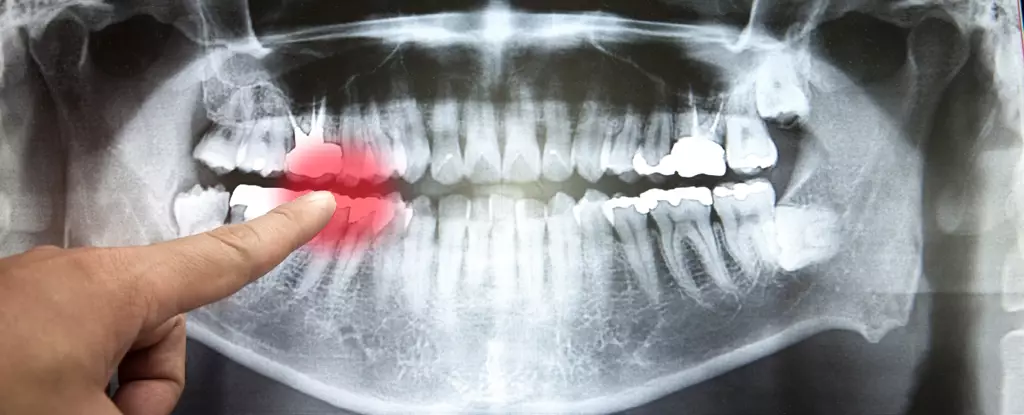A healthy smile is not only aesthetically pleasing, but it also plays a significant role in our overall well-being. However, our teeth, like the rest of our bodies, undergo age-related changes that can impact our oral health. Understanding these changes and taking proactive measures is essential to ensure a lasting and vibrant smile. In this article, we will explore the effects of aging on teeth and provide practical tips to maintain optimal oral health as we grow older.
Our teeth consist of multiple layers, each serving a specific purpose. The tooth crown, covered by a hard enamel coat, surrounds dentine, a brownish substance protecting the pulp at the center. Enamel, a complex weave of fragile, honeycomb-clustered strands, interacts with light to create a pearly iridescence. Dentine, made up of collagen, mineral, water, and proteins, forms the majority of the tooth crown and root. Collagen strands in dentine provide elasticity, preventing teeth from cracking and breaking during grinding and chewing.
The pulp contains blood vessels and nerves that communicate with the rest of our body. Embedded within the dentine mineral and collagen are small tubules formed by specialized cells called odontoblasts. These tubules connect with the pulp and contribute to tooth sensitivity. Unlike specialized bone cells that constantly regenerate, odontoblasts are finite in number. Consequently, aging teeth become brittle and prone to fracture as dentine loses its springiness, especially in teeth with existing crack lines, large fillings, or root canal treatments.
Aging-Related Changes to Teeth
As we age, the outer enamel surface undergoes thinning, eventually revealing the relatively opaque dentine beneath. This dentine darkens due to the stiffening and shrinking of collagen, as well as the mineralization of fluid within the tubules. Simultaneously, odontoblasts continue to form dentine inside the tooth, reducing the translucent pulp space. The increase in dentine gives our teeth an opaque appearance, while also insulating them from hot and cold sensations.
Furthermore, micro-gaps and fine crack lines that develop with age tend to trap food and drink particles, leading to discoloration and staining of the teeth. However, these stains can be effectively managed through tooth whitening procedures. Maintaining a bright smile and extending the life of our teeth requires additional measures to counter the effects of aging.
To ensure dental health in later years, it is crucial to follow these practical tips:
Avoid Using Teeth as Tools
Using your teeth to hold items or open packaging can exert unnecessary force on them, potentially leading to cracking or breakage. It is advisable to rely on appropriate tools for such tasks to protect your teeth.
Address Clenching and Grinding
If you suffer from clenching or grinding your teeth, wearing a night guard can help minimize the forces exerted on them. Discuss this concern with your dentist, who can recommend the most suitable options for your specific needs.
Protect Vulnerable Teeth
Teeth that have large fillings or have undergone root canal treatments are more susceptible to damage. Consult your dentist to explore protective measures such as specialized filling materials or crowns to safeguard these teeth against cracking or breaking.
Ease Chewing Pressure
In the absence of molars or premolars, distributing chewing forces evenly across your remaining teeth helps prevent overload. Bridges, implants, or well-fitted dentures can be viable options for replacing missing teeth and supporting your bite.
Maintain Good Oral Hygiene
Choosing soft-bristled toothbrushes and non-abrasive toothpaste can help reduce enamel and dentine loss. Some whitening toothpaste brands can be abrasive, causing tooth surface damage. Opt for toothpastes labeled as “sensitive” if you are uncertain. Additionally, minimizing exposure to acidic food or illness-related acid reflux and vomiting can prevent enamel erosion.
Preserve Saliva Quality
Saliva serves a vital role in oral health, protecting against acid attacks, flushing away debris, and possessing antibacterial properties. However, age-related changes to salivary glands and certain medications can reduce saliva production. Speak to your doctor to explore medication options that can improve saliva production or manage reflux disease to prevent erosion.
Combat Gum Disease
Treating gum disease (periodontitis) is essential to minimize gum recession, which can expose darker tooth roots more susceptible to decay. Managing lifestyle factors such as smoking, uncontrolled diabetes, and chronic infections like gum disease can prevent cell damage and contribute to overall oral health.
As we age, changes in cognition, hand dexterity, and eyesight may affect our ability to maintain effective oral hygiene. If such challenges arise, it is crucial to communicate with your dental care team. They can assist in maintaining a clean mouth, recommend suitable products and tools, and provide oral care strategies tailored to your specific circumstances and abilities.
Understanding the impact of aging on oral health is essential for maintaining a healthy smile throughout our lives. By taking proactive measures and following the tips outlined in this article, we can mitigate the effects of aging on our teeth and preserve our radiant smiles well into old age. Remember, a little extra care goes a long way when it comes to our dental health.


Leave a Reply